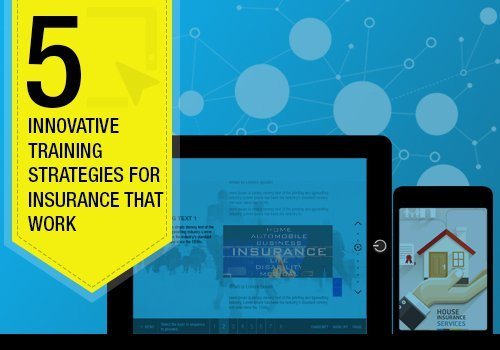The Insurance Industry's Talent Imperative
Against the background of dynamism, one aspect has emerged that is mission-critical to insurers who want to stay ahead of innovation: future-proofing employees through ongoing, adaptable learning. eLearning leads the charge in this revolution.
The insurance sector is facing two dilemmas: the retirement of seasoned professionals and a pressing need for digital talent. According to a Deloitte report, nearly 25% of the insurance workforce will retire over the next 5 years.
While insurers are compelled to utilize data analytics, they need AI and automation to remain competitive. This mismatch has generated an urgent requirement to both upskill current employees and to induct new talent efficiently. Conventional training processes are expensive and time-consuming. They are hard to scale, so are unable to keep up with these industry needs. eLearning provides a wiser, more responsive solution.
Why eLearning Is A Game Changer For Insurance
- Scalable and accessible training
Insurance firms tend to have a geographically dispersed workforce with agents, underwriters, and adjusters spread over regions. eLearning provides uniform, on-demand access to training information, irrespective of location. This scalability becomes critical for standardizing product, policy, and compliance knowledge. - Cost-effective skill development
Classroom training entails travel location and instructor costs. eLearning considerably reduces such costs while delivering consistent measurable results. Insurers can utilize the savings to invest in other strategic initiatives (i.e., innovation or customer experience) - Microlearning for rapid knowledge refresher
The insurance environment is characterized by constant regulatory updates and policy adjustments. Microlearning modules are bite-sized courses that can easily bring teams up to speed without interfering with workflows. For instance a five-minute module on new cyber insurance regulations can be rolled out across departments within hours. - Personalized learning paths
With Learning Management Systems (LMSs) the insurer can design custom learning paths according to an employee's job department, technical skill level, or career goal. An underwriter may require extensive technical education in risk modeling, whereas a customer service representative would gain more from empathy and communication modules. eLearning platforms can learn to map content to learner profiles, driving maximum ROI. - Compliance and risk mitigation
With privacy laws such as GDPR and local insurance regulations changing regularly, compliance training is not optional. eLearning, besides simplifying tracking of completion and assessment records, enables organizations to audit and report on learning effectiveness, essential in highly regulated sectors.
Key Insurance Skills Need Future-Proofing
To survive in the digital era, insurance professionals need to look beyond product-specific knowledge and acquire a hybrid skillset with a combination of technical, analytical, and people skills. The following are some key areas of priority:
- Digital literacy
Familiarity with tools, such as CRM systems, data dashboards, and AI-based underwriting platforms. - Data interpretation
Interpreting customer behavior, risk patterns, and predictive analytics. - Customer-centric skills
Clear communication, efficient resolution of queries, and establishing trust in a digital environment. - Cybersecurity awareness
Detection and response to cyber threats, specifically in claims and customer information handling. - Innovation and agility
Being adaptable, adopting new technology, and staying one step ahead in new threat development (i.e., climate change policies, pandemics policies)
eLearning platforms are able to offer interactive, scenario-based learning sessions that reflect real insurance problems, enabling employees to gain knowledge and confidence.
Applications Of eLearning In Insurance In Real Life
Leading insurers are already leveraging eLearning to transform their talent strategy:
- Scaling onboarding
One international insurer leveraged eLearning to onboard 3000+ APAC agents within 30 days, with a view to unified training and faster productivity. - Gamified regulations compliance training
One regional insurer used gamified regulatory training modules and delivered a 40% increase in completion and participation. - Driven skill mapping
Certain visionary insurers are leveraging AI solutions to evaluate current employee skillsets and provide customized learning paths, enhancing workforce flexibility.
The Road Ahead: Creating A Learning Culture
If insurers are to future-proof skills, they need to look beyond the one-off training session and develop a continuous learning culture. Leadership engagement is key. So too is making learning explicit, desirable and aligned with performance objectives.
Insurers may also cooperate with eLearning companies to create tailored content reflecting actual use cases, regulatory environments, and brands. Blended methods, such as the integration of eLearning with webinars, mentorship and peer learning, can enhance retention and collaboration further.
Conclusion
As the insurance industry confronts disruption and reinvention, eLearning has become an unstoppable partner. It allows insurers to remain agile, compliant, and competitive by empowering employees with the necessary skills when and how they need them. Digital insurance isn't merely about safeguarding policyholders these days; it's about safeguarding the strengths and relevance of your workforce. In today's digital world, eLearning is not a choice for insurers. It's a must.










